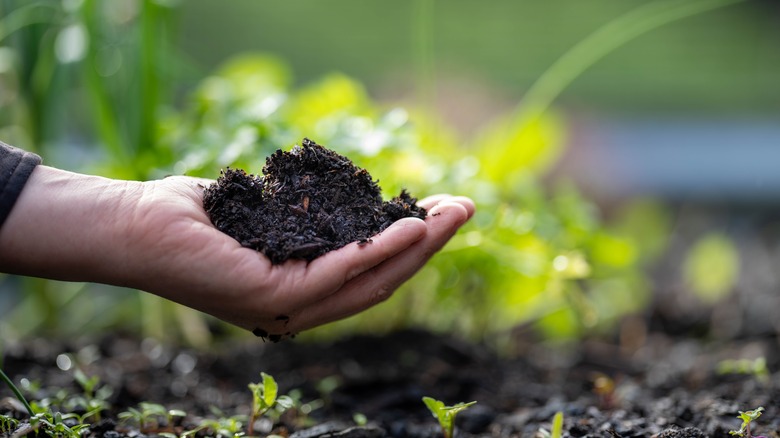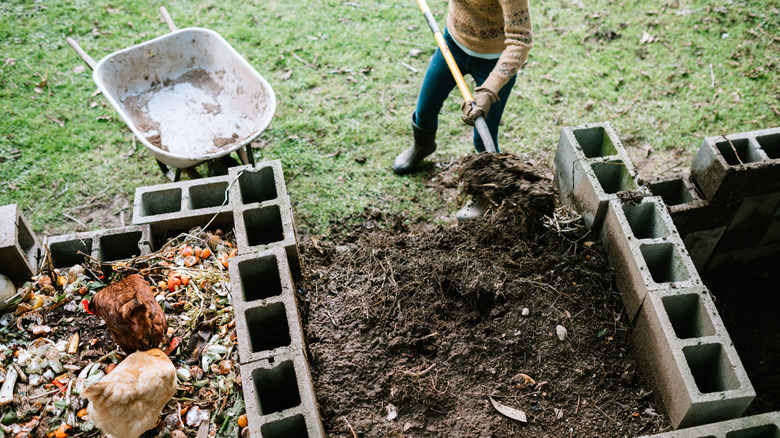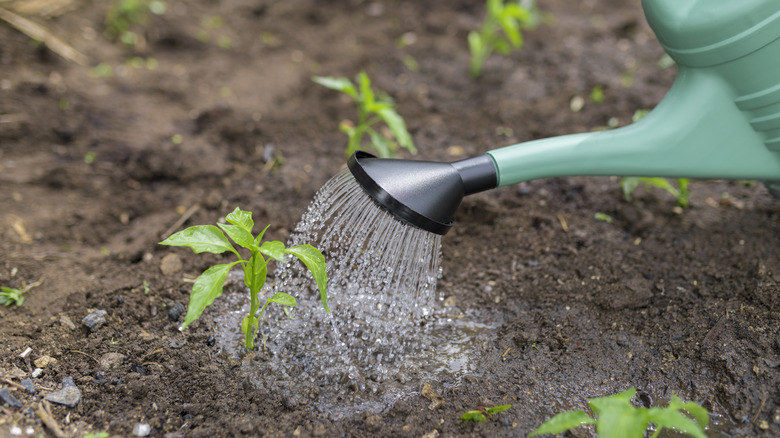This Natural Solution Will Help Your Garden Thrive
Healthy soil is fundamental to plant growth. It's not just a nutrient source for plants but also a key factor for increasing water retention, improving drainage, and providing the ideal environment for a strong root system. In response to the reliance on chemical fertilizers in agriculture, biostimulants, such as wood vinegar, have emerged as a promising, eco-friendly alternative. Wood vinegar is a natural solution that can increase microbial activity and contribute to more productive, healthier soils in your garden.
Wood vinegar, also referred to as pyroligneous acid or liquid smoke, is a byproduct obtained from charcoal production and the pyrolysis of organic raw materials. Wood is burned in a low-oxygen environment, producing gasses, liquids, and charcoal — wood vinegar is formed by the condensation of smoke emitted during this process. With a pH of 2.5 to 3.0, it comprises hundreds of compounds, including organic acids, alcohols, esters, and phenols. The liquid is yellow to brown in color and has a strong, smoky odor.
How can wood vinegar help your garden soil thrive?
Thanks to its combination of compounds, wood vinegar's benefits are multifaceted. This biostimulant can enhance microbial activity or inhibit eelworms and soil diseases. Soil microbes increase organic matter content through decomposing plant materials and improve soil structure by forming stable microaggregates. These qualities enhance both water infiltration and retention in the soil.
Applying wood vinegar to your compost heap can also help accelerate the composting process thanks to these beneficial organisms. Incorporating compost into your garden will further enrich the soil with valuable nutrients, balance soil density, and discourage certain weeds and pests. Wood vinegar also has beneficial effects as a plant growth enhancer, with evidence that application to the soil increases the availability of nitrogen and phosphorus. These major nutrients contribute to vigorous growth, chlorophyll production, root health, and converting energy from the sun via photosynthesis. Consider that improving nutrient availability in your soil can help reduce reliance on chemical fertilizers.
How to use wood vinegar as a soil enhancer
It is important to consider concentration and delivery methods when using wood vinegar in your garden. Biostimulants are generally applied as growth invigorators, either as a soil drench to enhance soil health or as a foliar feed to provide antifungal benefits. Compost enriched with wood vinegar can also be worked into your soil or used as a type of mulch for your garden.
Be sure to note that the effects of wood vinegar can vary depending on the concentration. While low concentrations can increase microbial activity in the soil, high concentrations may kill these beneficial organisms — a dilution ratio of 1:300 to 1:500 is best for a higher count of soil microbes, with higher concentrations used to sterilize soil and remove diseases. Apply a soil drench of low-concentration wood vinegar directly to the garden soil and around the bases of your plants. For use in your compost, incorporate wood vinegar at a dilution ratio of 1:100 to 1:500 and mix well. If you have just started composting, take care to maintain moisture levels by incorporating the right balance of carbon-rich and nitrogen-rich materials into your pile.


